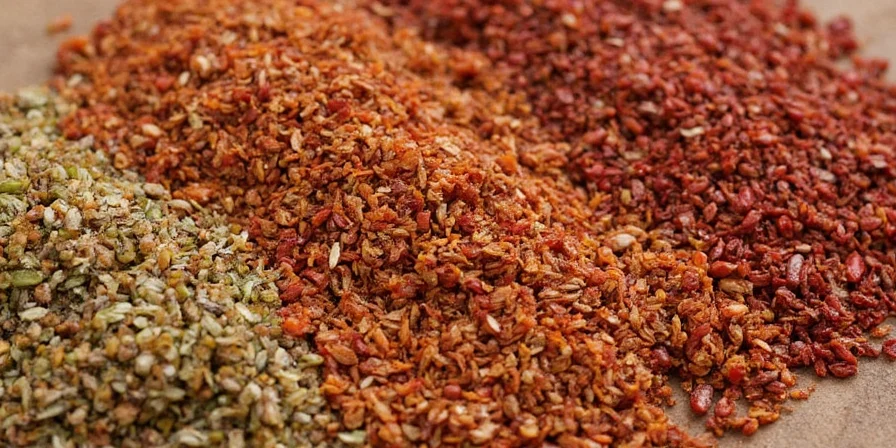Unlocking the Flavor: A Deep Dive into Peri Peri Seasoning
When it comes to seasoning, few blends can ignite your taste buds like peri peri seasoning. Originating from Africa, this vibrant mix of spices has captured hearts and palates around the world. In this article, we will explore the rich history, the components of peri peri seasoning, its culinary uses, health benefits, and tips for making your own blend at home.
The Origins of Peri Peri
Peri peri, also known as piri piri, is a term used for the African bird's eye chili, which is the star ingredient in this seasoning blend. The history of peri peri is steeped in the culture of Africa, particularly in countries like Mozambique and South Africa. It was initially brought to Africa by Portuguese explorers in the 15th century and has since evolved into a beloved staple in various culinary traditions.
Cultural Significance
- Mozambique: In Mozambique, peri peri is not just a seasoning; it represents a sense of community and traditional cooking methods. Grilled chicken marinated in peri peri sauce is a popular dish.
- South Africa: South African cuisine has embraced peri peri, featuring it in various dishes, from grilled meats to stews.
- Global Influence: Today, peri peri seasoning has transcended borders, influencing cuisines around the world, particularly in fast-food chains and gourmet restaurants.
What is Peri Peri Seasoning Made Of?
Peri peri seasoning is a versatile blend that can include various spices and ingredients. While recipes may vary, a basic peri peri seasoning typically consists of:
| Ingredient | Flavor Profile |
|---|---|
| African Bird's Eye Chili | Heat and fruity notes |
| Garlic Powder | Savory and aromatic |
| Onion Powder | Sweet and pungent |
| Paprika | Rich and smoky |
| Lemon Zest | Citrusy and fresh |
| Salt | Enhances overall flavor |
| Black Pepper | Earthy and spicy |
| Oregano | Herbaceous and aromatic |
How to Use Peri Peri Seasoning
The beauty of peri peri seasoning lies in its versatility. Here are some popular ways to incorporate it into your cooking:
- Marinades: Combine peri peri seasoning with olive oil and lemon juice for a flavorful marinade for meats, seafood, or tofu.
- Grilled Dishes: Use it as a dry rub for grilled chicken, shrimp, or vegetables. The heat of the peri peri will caramelize beautifully on the grill.
- Sauces: Blend peri peri seasoning with yogurt or mayonnaise to create a zesty dipping sauce for fries or grilled dishes.
- Soups and Stews: Add a pinch of peri peri to soups and stews for a kick of flavor. It pairs well with tomato-based dishes.
Health Benefits of Peri Peri Seasoning
Beyond its delicious taste, peri peri seasoning also boasts several health benefits thanks to its key ingredient, the African bird's eye chili. Here are some of the health benefits associated with peri peri:
- Boosts Metabolism: Capsaicin, the active compound in chili peppers, is known to boost metabolism, helping in weight management.
- Rich in Antioxidants: Peri peri seasoning contains various antioxidants that can help combat oxidative stress and inflammation in the body.
- Improves Digestion: Spices in peri peri aid digestion and can help alleviate digestive discomfort.
- Enhances Mood: Spicy foods, including those seasoned with peri peri, are known to trigger the release of endorphins, improving mood.
Making Your Own Peri Peri Seasoning
Creating your own peri peri seasoning at home is simple and allows you to customize the spice level to your liking. Here’s a quick recipe:
Homemade Peri Peri Seasoning Recipe
- Gather the following ingredients:
- 2 tablespoons African bird's eye chili (or substitute with cayenne pepper for a milder version)
- 1 tablespoon garlic powder
- 1 tablespoon onion powder
- 1 tablespoon smoked paprika
- 1 teaspoon lemon zest
- 1 teaspoon salt
- 1 teaspoon black pepper
- 1 teaspoon dried oregano
- Combine all ingredients in a bowl and mix well.
- Store in an airtight container in a cool, dark place.
- Use as needed to spice up your favorite dishes!
Tips for Using Peri Peri Seasoning
Here are some tips to get the most out of your peri peri seasoning:
- Adjust the Heat: If you prefer a milder flavor, reduce the amount of chili used in your seasoning blend.
- Pair with Acidity: The heat of peri peri pairs beautifully with acidic ingredients like lime or vinegar, enhancing the overall flavor of your dish.
- Experiment: Don’t hesitate to add other spices or herbs to the mix, such as cumin or thyme, to create a unique flavor profile.
Conclusion
Peri peri seasoning is more than just a blend of spices; it’s a celebration of flavor that has crossed borders and cultures. From its rich history in Africa to its global popularity today, peri peri seasoning adds a fiery kick to a wide array of dishes. Whether you’re grilling, marinating, or creating a zesty sauce, incorporating peri peri seasoning into your meals can elevate your culinary experience. So, grab some peri peri seasoning and unleash the flavors in your kitchen!











 浙公网安备
33010002000092号
浙公网安备
33010002000092号 浙B2-20120091-4
浙B2-20120091-4